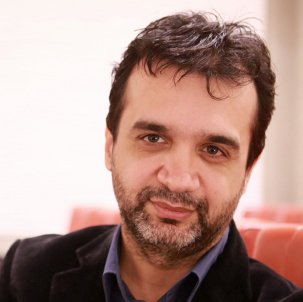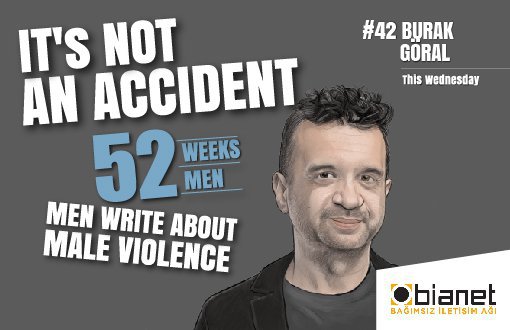Click to read the article in Turkish / Kurdish
I am thinking about who the male heroes of my childhood were. I had a comic book culture, though not very deep. I used to read Zagor the most.
And there was also Mister No. But, in Mister No, our adventurous hero used to get into trouble mostly because of women. Mister No, who had a weakness for women, was easily deceived by the skillfully drawn "femme fatales".
As for Zagor, it was a comic book that sailed in more secure waters when it came to the issue of women. The struggle of Zagor was to secure a just order in the Darkwood forest where he lived. His relationship with women was very much in the background.
Then, one day, I watched Star Wars in the cinema and my life changed a lot. My number one hero was Han Solo now. An adventurous smuggler who stands out from the pack and lives for his own pleasure and future!
He joined the rebels, first for his own interest, then, because she liked Princess Leia and as the story unfolded, he learnt to put his life in danger for more noble causes.
In fact, Princess Leia was not a typical princesses waiting to be rescued; on the contrary, she was a headstrong woman who always gave as good as she got and became a warrior if need be. I mean, such women were more attractive to me. Evidently, my interest in women with strong character started back then...
After Star Wars, whenever we came together with the children of our relatives in the evenings, we used to play the game of "saving the princess". In our eyes, women were valuable creatures who needed to be saved by the good men from the hands of bad men.
The only girl in the family who was the right age to play with us was the beautiful daughter of my uncle, Gökçen; she used to be either the princess or "the daughter of the Chancellor" kidnapped for a substantial ransom...
I was responsible for the scenarios and design of the characters! I used to fill our games with all the clichés that we watched in cinema and on television. But, I would warn Gökçen all the time telling her, "Say some harsh words now and then, don't just stand there like a doll!"
Of course, as children we were also affected by the image of "the sexy woman as the prize of the heroic man" which was presented to us via advertisements, TV series and movies like James Bond. It was as if not valuing women was one of the indispensable conditions for men to look "cool".
As you know, the interest of high school girls in "bad boys" is quite famous. In my high school years, my attempts at becoming a "bad boy" always ended in failure. I could not act as if women were not valuable. That is why, I always became the best friends, but not the boyfriends, of the girls that I liked in high school!
The movies and TV series, where men amply exploited women, have, of course, always existed in cinema and television. Especially in the movies of traditional Turkish cinema (Yeşilçam) destined to be blockbusters...
But a balance struck by the public broadcaster TRT needs to be highlighted. For instance, the TV series Perihan Abla (Big Sister Perihan), whose main character was a skilled woman with a high social capability who was loved and respected by everyone, was an entertaining and positive production that valued the neighborhood culture and narrated the importance of cooperation and solidarity. In fact, it might be because it pushed its matriarchal structure a bit too far that it made the main male character of the series run away from it years later.
With the private TV channels becoming more widespread, the exploitative and intentionally/unintentionally discriminatory mentality found itself an ampler room for maneuver in TV dramas. We have arrived at our present state with Kadirisms [cult of machismo inspired by the characters played by Kadir İnanır], the ones who wrote "the book of manhood" from scratch, and Polat Alemdars [another macho character in Valley of the Wolves, a movie/TV series on the deep state and the mafia relations in Turkey]...
Now, in most of our TV series and comedy movies, it seems almost "imperative" that women are passive and very much dependent on the existence of a man, while men are rude and, definitely, macho so as to be charismatic.
According to a study conducted by the Turkish Statistical Institute entitled "The Use of Information Technologies by Children and Media", 92.5 percent of children between the ages of 6 and 15 watch television every day. The same study also shows that the rate of watching cartoons among children considerably decreases after the age of 10 and cartoons are gradually replaced by domestic television series and movies.
While the rate of watching domestic TV series among children between the ages of 6 and 10 is 44 percent, this rate hits 77 percent among children between the ages of 11 and 15.
It means that the rate of children among the audience of the domestic series produced by the television channels of Turkey is considerably high. But, is there anything in these television series that could contribute something to children or that could add something positive to their lives? It is, of course, not right to expect all television series to assume such a responsibility.
But, seeing as under the name of televising they have done away with time-belts for specific programs and/or audiences and chosen to air a single four- five hours long TV series right after the main news bulletin, then, it is expected that some degree of responsibility will be taken! For instance, almost none of our television series encourages people to work or to be good people.
It is unknown even how those rich male characters reached such high positions in society. Most of them are rich thanks to their families, they are almost never depicted while working. Their educational background is not known, either. On top of that, most of these men are rude and aggressive.
As for women, they are completely reduced to being dependent on the mere shadow of men; there are almost no strong women characters that can be presented as role models for girls. But, in our day and age, these TV series occupy a very important place in the list of shows watched by children.
In the previous months, we had strongly criticized, especially on social media, a television series for depicting its heroine, who had escaped from male violence, in the most horrible of circumstances.
The defense of the creators of the series was "to raise awareness". But, in a society where grace and refinement have been gradually disappearing, that is no way to raise awareness. Especially when there is an audience which also includes children...
How is the situation in cinema, then?
Five or six years ago, while hanging out with my son in the playground, we started talking with another father. When this father heard what I did for a living, he got very interested and called out to his five or six-year-old son to join us.
He said to his son, "Look, this uncle is a filmmaker, imitate Recep İvedik* for him". At once the child puffed his belly out and started making sounds like "hohahaha", and all of a sudden a new window opened in my professional life. [*a popular Turkish comedy movie starring a fat, filthy, stupid and aggressive anti-hero named Recep İvedik]
Then, I started to take a closer look at the social media accounts of some parents, and also observed the parents of my son's friends. All of the domestic comedy movies were perceived by the families as films that can be watched in the company of children. After this point, I focused some part of my work entirely on this subject.
Do you know which scenes the parents around the world have been trying to protect their children from the most? According to the results of several studies, we fear nothing as much as we fear nudity! We are scared to death that children will see people making love on the cinema screen... And, the content which people are least concerned about in Turkey actually points at a different danger: toilet humor.
Toilet humor refers to an exaggerated humor which deals with defecation, urination or farting, vomiting and other bodily functions, and gradually crosses the line.
In some Hollywood comedies as well as most of our domestic comedy films, humor is produced through a masculine language supported by a sexist perspective, frequent use of slang words, discrimination through sexism, roughness and, from time to time, anti-heroism.
Humor of this type has a very wide target audience. However, people in other countries can exclude the children in their own societies from this target audience as best as they can with a reliable auto-control mechanism. For instance, they have an age classification system that they apply quite strictly.
Because, children, especially the ones who watch such movies prematurely, are very likely to see the protagonists of these movies as role models, look up to and misunderstand them.
However, in our country, movies are not evaluated from this point of view. In these movies, domestic filmmakers exert a special effort to get rated suitable for ages 7+ and most of the time they manage to get it. The rudest ones are rated 13+ at most. In fact, the majority of these movies should be rated 15+.
Although a thousand other examples can be given, it is easier to refer to the most obvious one. In the fourth movie of the Recep İvedik film series, İvedik, who takes part in the competition on the Survivor island, humiliates an overweight woman, who is one of his opponents, in an extremely harsh language and, on top of that, also inflicts physical violence on her in one of the scenes.
This movie comes out rated 7+ and unfortunately some children start to act like İvedik, whom they view as an amusing and sweet hero...
I hope that the child, whom I met five or six years ago when he was imitating the laugh of Recep İvedik, is not still taking İvedik as an example and teasing some of his girl friends at school now!
The most terrible of all is that some parents, who are so afraid that their children will see a couple of breasts, see no harm in wheedling tickets at the box offices for their children under the age of 7 so that they can watch the comedy films in which antiheroes smash and destroy everyone around them, and especially the women. (BG/ŞA/APA/SD/IG)
Images: Kemal Gökhan Gürses





